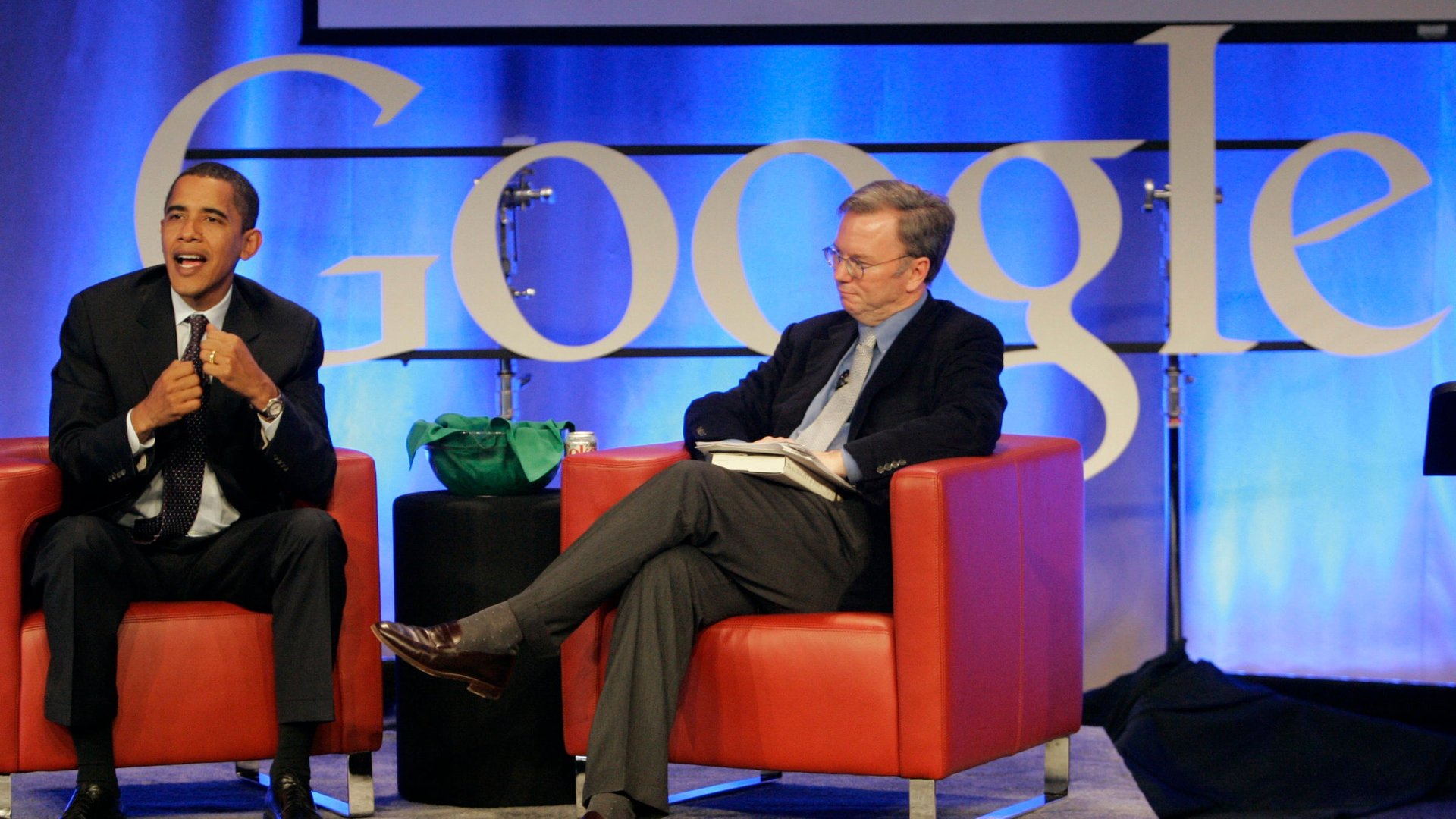Google now spends more on lobbying than Lockheed Martin
Google might actually be fulfilling Julian Assange’s nightmares and turning into the Lockheed Martin of 21st century lobbying, having spent more than the military defense company on pushing issues in 2012, with a record $18.2 million that made it the eighth largest lobbyist in DC.* “The company that once had no use for Washington,” as The New York Times‘s Edward Wyett puts it in a profile of Google’s chief Washington lobbyist Susan Molinari, has a newfound use for lawmakers, not only as it battles anti-trusts suits with money, but also as chairman Eric Schmidt embarks on his new hobby as a part-time ambassador. “What Lockheed Martin was to the 20th century,” Schmidt and Jared Cohen wrote in their book The New Digital Age, “technology and cybersecurity companies will be to the 21st.” That’s a vision of the future highlighted over the weekend by Assange, another digital futurist, in a blistering Times op-ed as “an expertly banalized version of tomorrow’s world.” Google’s vision also, appropriately, includes making the right connections in the nation’s capital.


Google might actually be fulfilling Julian Assange’s nightmares and turning into the Lockheed Martin of 21st century lobbying, having spent more than the military defense company on pushing issues in 2012, with a record $18.2 million that made it the eighth largest lobbyist in DC.* “The company that once had no use for Washington,” as The New York Times‘s Edward Wyett puts it in a profile of Google’s chief Washington lobbyist Susan Molinari, has a newfound use for lawmakers, not only as it battles anti-trusts suits with money, but also as chairman Eric Schmidt embarks on his new hobby as a part-time ambassador. “What Lockheed Martin was to the 20th century,” Schmidt and Jared Cohen wrote in their book The New Digital Age, “technology and cybersecurity companies will be to the 21st.” That’s a vision of the future highlighted over the weekend by Assange, another digital futurist, in a blistering Times op-ed as “an expertly banalized version of tomorrow’s world.” Google’s vision also, appropriately, includes making the right connections in the nation’s capital.
So far the fruits of Google’s lobbying efforts have resulted in a huge win in an anti-trust case, but the company has even bigger plans to prod legislation in its own self-interest. See, back in 2010 Schmidt realized “much of the laws are written by lobbyists,” he said during The Atlantic’s Washington Idea’s Forum. Google hired and funded an army of capable policy crafters, not only to save itself from government fines that don’t even make a dent but also to help write Google-powered legislation. In the near future, that means ramped up efforts to influence immigration reform. Schmidt is part of the contentious Silicon Valley group FWD.us, which is lobbying for a very specific type of immigration reform. Google also has Molinari working on updates to the Electronic Communication Privacy Act—that pesky bill the government uses to justify spying on your Gmail without a warrant.
But in the long term, all those billions of dollars will also go toward Schmidt’s foreign policy visions, and Google’s attempts at worldwide domination outside of Washington. Along with his book, Schmidt has attempted (and so far failed) to broker diplomatic relations with foreign nations,visiting North Korea back in January and Myanmar in March. While he has managed to drum up publicity for The New Digital Age, threatening Kim Jong-un to use the Internet (or else!) hasn’t changed the country’s relationship with America. Money, however, speaks louder than Schmidt’s “humanitarian” words — and could lead to the type of geopolitical change he talks about in the book. Schmidt may hope to save countries from totalitarianism via Android equipped phones and Google Glass, but Assange sees the political vision differently: “… while Mr. Schmidt and Mr. Cohen tell us that the death of privacy will aid governments in ‘repressive autocracies’ in ‘targeting their citizens,’ they also say governments in ‘open’ democracies will see it as ‘a gift’ enabling them to ‘better respond to citizen and customer concerns,” Assange writes. “In reality, the erosion of individual privacy in the West and the attendant centralization of power make abuses inevitable, moving the ‘good’ societies closer to the ‘bad’ ones.”
Whether you fall on the Schmidt or Assange side of that future, Schmidt has one big advantage: lots and lots of money. That, along with the right people to peddle his views in DC, means our Google overlords are more powerful than ever before.